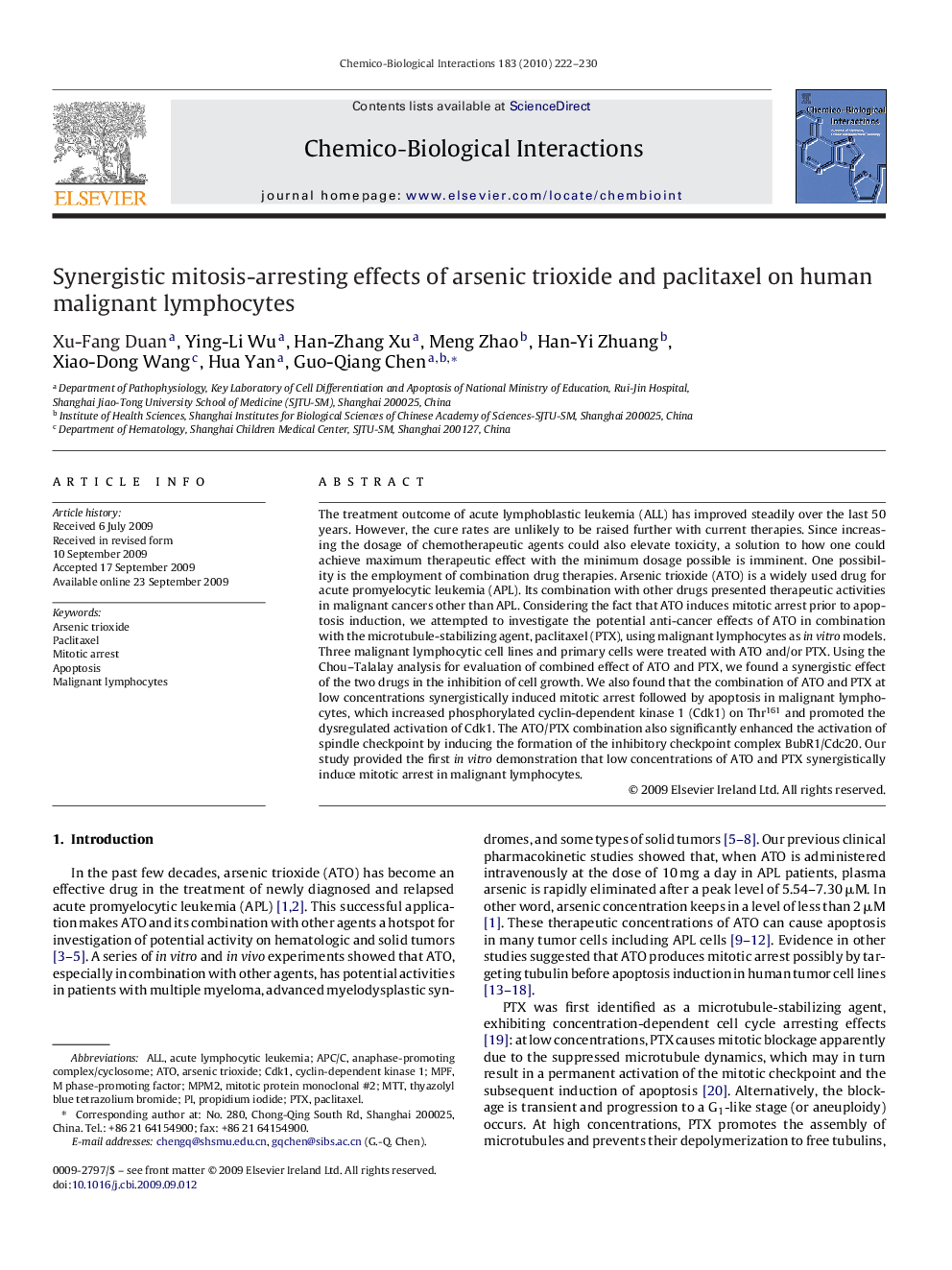| Article ID | Journal | Published Year | Pages | File Type |
|---|---|---|---|---|
| 2581424 | Chemico-Biological Interactions | 2010 | 9 Pages |
The treatment outcome of acute lymphoblastic leukemia (ALL) has improved steadily over the last 50 years. However, the cure rates are unlikely to be raised further with current therapies. Since increasing the dosage of chemotherapeutic agents could also elevate toxicity, a solution to how one could achieve maximum therapeutic effect with the minimum dosage possible is imminent. One possibility is the employment of combination drug therapies. Arsenic trioxide (ATO) is a widely used drug for acute promyelocytic leukemia (APL). Its combination with other drugs presented therapeutic activities in malignant cancers other than APL. Considering the fact that ATO induces mitotic arrest prior to apoptosis induction, we attempted to investigate the potential anti-cancer effects of ATO in combination with the microtubule-stabilizing agent, paclitaxel (PTX), using malignant lymphocytes as in vitro models. Three malignant lymphocytic cell lines and primary cells were treated with ATO and/or PTX. Using the Chou–Talalay analysis for evaluation of combined effect of ATO and PTX, we found a synergistic effect of the two drugs in the inhibition of cell growth. We also found that the combination of ATO and PTX at low concentrations synergistically induced mitotic arrest followed by apoptosis in malignant lymphocytes, which increased phosphorylated cyclin-dependent kinase 1 (Cdk1) on Thr161 and promoted the dysregulated activation of Cdk1. The ATO/PTX combination also significantly enhanced the activation of spindle checkpoint by inducing the formation of the inhibitory checkpoint complex BubR1/Cdc20. Our study provided the first in vitro demonstration that low concentrations of ATO and PTX synergistically induce mitotic arrest in malignant lymphocytes.
